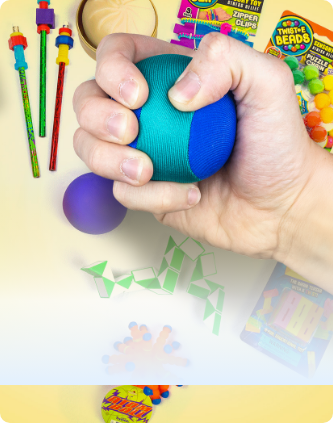5 Sensory Tips for Teachers
Posted by Britt Collins M.S., OTR/L on Jun 22nd 2022
It's back to school and the children are arriving and you have spent all this time decorating your classroom. During the first week, you notice that one of your kids is squinting at the board and doesn’t seem to be paying attention to you. You notice another child is staring off at the busy bulletin board looking at the bright colors and you have another child who cannot sit still in their seat and are constantly bouncing around.
What are you supposed to do?!?!
Try to give all the children in your classroom sensory movement breaks throughout the day. Incorporate these into your lesson plans. For math, have the children jump to count and go through an obstacle course to read sight words (i.e. walk across a balance beam, jump over a log, climb up onto the bean bag, call out the flash card sight word and throw a bean bag into the bucket). Children will learn to love learning and that we have to MOVE in order to learn.
If you have a child who is visually distracted by stimuli, maybe move their seat, or make sure your classroom is not overloaded with stuff on the walls. It doesn’t have to be boring white, but too much in the classroom can be overwhelming for a sensory sensitive child.
For that mover and shaker, have them sit on a therapy ball, or a wiggle seat. Give them a fidget toy to squish to help them pay attention and create rules around not throwing it, or pulling it out to distract other children.
If a child is having trouble copying from the board, give them a slant board to write on and have them copy from their desk. They may have visual perceptual issues that make it difficult to transfer what is written on the board to their paper. Consult with your OT to see how you can help any child that is struggling in the classroom.
For a child that may seem like they are not listening, see if the OT or Speech therapist can help with auditory processing issues. That child may need 30 extra seconds to process what you are saying to them, or it may be hard for them to filter out what you are saying from the lawn mower outside.
Don’t be afraid to call in your Occupational Therapist to help provide sensory strategies for your kids in your classroom.
Britt Collins M.S., OTR/L Co-author of Sensory Parenting: Newborns to Toddlers www.sensoryparenting.com







